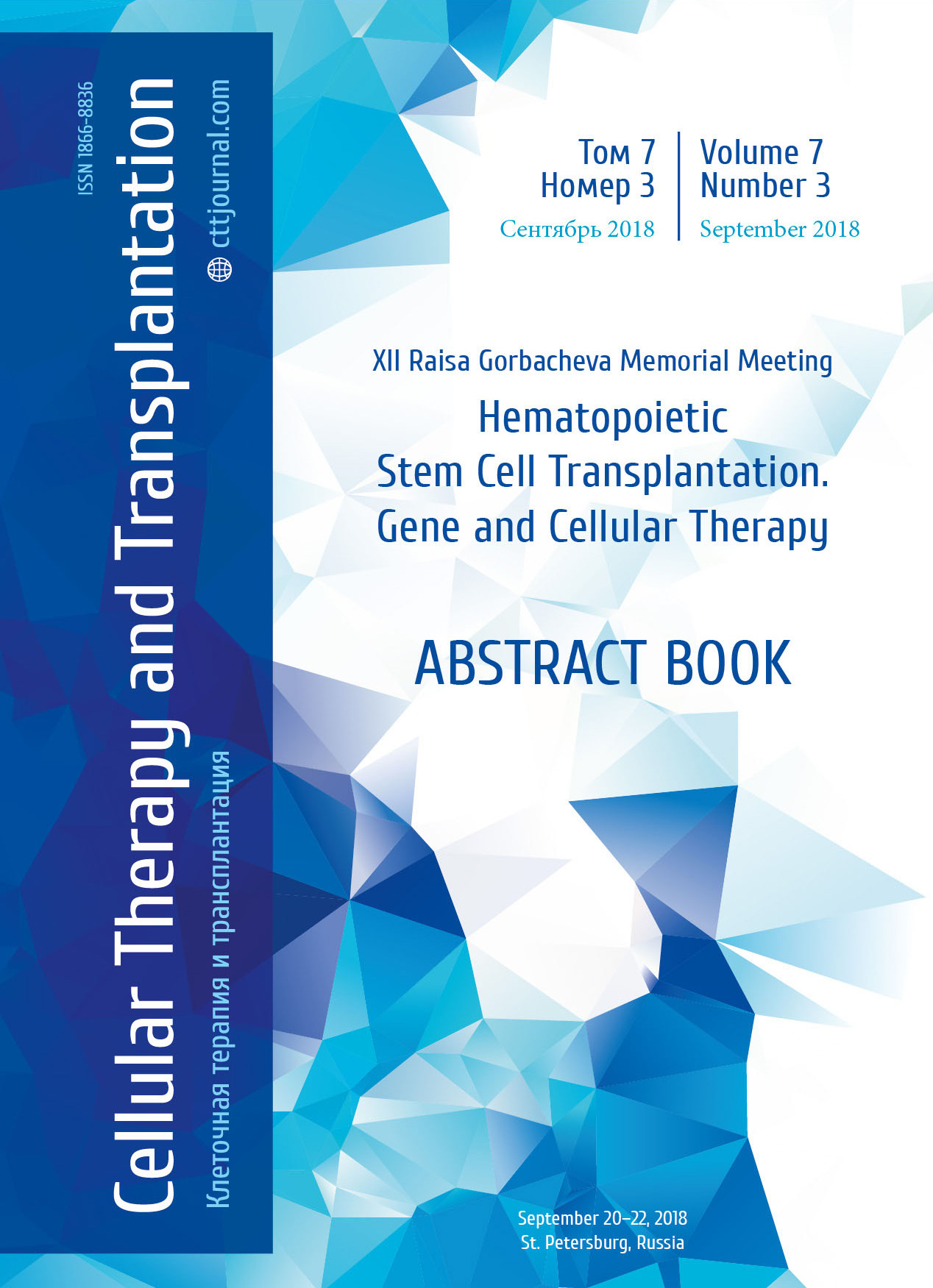Functionalization of bone marrow mesenchymal stromal cells by multifunctional capsules for targeted drug delivery
Summary
Introduction and goals
The aim of this work is to investigate the possibilities of usage of multipotent mesenchymal stromal cells (MMSC) as a platform for delivering drugs which are contained in hybrid polymeric microcapsules. MMSCs are a cell population with high potential which due to the phenomenon of pathotropism can solve the problem of target drug delivery by acting as a carrier. Thus, combination of the biological phenomenon of cell migration and the high loading capacity of polymer capsules will allow targeted delivery of a substance without external and internal effect on carrier cells. To test the technique, doxorubicin and vincristine were selected as antitumor drugs with a dose-dependent effect, which are included in many polychemotherapy regimens.
Methods
In this study, hybrid microcapsules of various sizes (5 μm, 1 μm, 0.5 μm) were synthesized using Layer-by-Layer technique (Polyarginine/Dextran sulfate) and sol-gel synthesis (Tetraethyl orthosilicate). These micro containers have low toxicity, high biocompatibility, and are also capable of protecting the cell from encapsulated drugs. The association of cells with capsules of various sizes was evaluated using flow cytometry and laser scanning confocal microscopy in order to determine the optimal ratio of capsules and cells. The effect of capsules of various sizes associated with cells on spontaneous migration of MSCs, was examined using a cell-IQ cell culture monitoring system. The ability of MMSC to direct migration through the concentration gradient of SDF-1 was studied. For qualitative and quantitative assessment of migration, Transwell, μ-Slide Chemotaxis were used, and the ability of MMSC to migrate in the collagen gel towards spheroids of cancer cells synthesizing SDF-1 and their ability to penetrate the conglomerate of cells was investigated.
Results
The results show that MSC cells are able to capture more than 10 capsules containing antitumor drugs – doxorubicin, vincristine. According to the experimental data of flow cytometry, it has been shown that about 90% of the cells are able to internalize the capsules with high efficiency. The unique structure of capsules prevents the release of antitumor drugs within 72 hours. It is shown that most of the cells are able to transfer capsules along the SDF-1 gradient and into the tumor spheroid focus.
Conclusion
Thus, it is shown that MSCs with capsules containing antitumor drugs can serve as a new dosage form for the targeted delivery of antitumor drugs to the tumor site.
Acknowledgments
This work was supported by the Russian Foundation for Basic Research (grant No. 18-015-00100).
Keywords
Targeted delivery, micro and nanocapsules, antitumor drugs, internalization, mesenchymal stromal cells, migration, pharmacokinetics, synthesis, cultivation, carrier cells.


